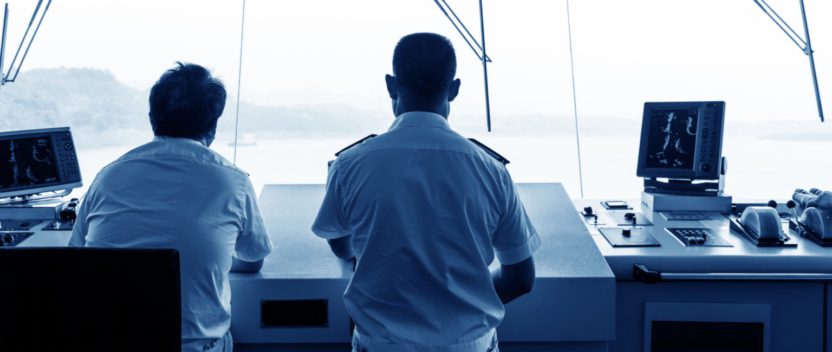Economic or environmental imperative? It could be both.
The first part of our interview with Roger Strevens spelt out the concerns of Trident Alliance members about the enforcement of IMO rules on low sulphur rules in the Baltic and North Sea Sulphur Emission Control Areas (SECAs) as well as what happens when the global cap is reduced to 0.5%. In the second, he talks more about the commercial impacts of managing regulation and what the industry might expect in future.
So what is the Trident Alliance? Explicitly not a lobby group, Strevens says, but more a communication initiative, one that does not push for new regulation, but rather advocates for the effective enforcement of what sulphur regulation already exists. But isn’t the alliance in common with some other bodies demonstrating a new approach to regulation, leading first rather than grumbling later and in the process raising a need for awareness and ultimately shaping policy?
“I think [the alliance] reflects the fact that sulphur regulation is different to anything that the industry or officialdom has had to contend with before. For industry the challenges centre on the unprecedented level of cost while for officialdom what is different is their greatly increased responsibility in maintaining fair competition through effective enforcement, something that stems from the high cost of compliance”.
This is not just because of the unusual alignment of environmental and commercial interest around sulphur but because he thinks we have hardly seen the last of environmental regulations.
One of the main difficulties with the current system is that while IMO is primarily responsible for drafting regulations, setting standards and issuing guidance, it is the responsibility of the member states to enforce. “The key question is how can the sulphur regulation be enforced in international waters? Do you think that an effective enforcement regime can be implemented for this? Whether that’s possible or not remains to be seen.”
Even though the alliance is still in the early stages of flagging up the problem, Strevens is keen to stress that while the environmental benefits are clear and desirable, this is primarily a business issue. The alliance has drawn criticism that it is more about market share than about doing good, but he notes that in this context, they need not be mutually exclusive.
“This is business; environment and business become the same thing, when we’re dealing with sulphur because of the cost and because of the impact that the regulation has on the environment and on health. We’re not environmental crusaders, but obviously the fact that what we’re doing does align with environmental interests strengthens our message,” he says.
Are the Trident Alliance members looking to protect market share? “I think it’s a fair point and what’s wrong with that? We don’t want to be pressed out by those who can gain an unfair advantage through non-compliance. What we’re actually advocating is the best path forward for the industry and the environment. Who could fault that?”
Remember too that carriers are bound by their commercial contracts and their insurance policies to be compliant with all relevant regulations. Go one level deeper and the investors’ financing agreements also stipulate compliance so the concept is baked in.
He genuinely believes that most companies – and not just Trident Alliance members – are complying with the current regulations but has caveats. “The number of bad eggs is inversely proportionate to the strength of enforcement. If the enforcement is weak and if the regulatory cost is high then there is a temptation not to comply,” he adds. The global cap will be far more costly than even today’s SECA regulation, but it will also be even harder to enforce.
Even leaving aside the environmental regulatory position, in the current rates environment, owners and carriers would surely want to do everything they could to hold onto contracts and spot business and demonstrate that to their customers, whether that’s a supermarket or a car maker or a fresh products producer.
Still the need to remain competitive is what might tempt owners into non-compliance in international waters if they perceive the chances of getting caught as low. Shipping is notoriously fond of chasing cost down rather than value up.
Calling Marpol Annex VI ‘regulation but not as we know it’ with costs for the industry ‘that dwarf anything we’ve seen before’ he thinks the majority see a fuel switch as the path of least resistance.
But even in a period of lower fuel costs, this will still see a close to doubling of bunker costs between heavy fuel and the distillate needed for 0.1% SECA operations. Every operator can appreciate the hit that will inflict on their bottom line and danger is that with weak enforcement some may be tempted to ‘work around’ the problem.
That is the lowest common denominator approach, but isn’t the alliance letting the side down by jumping up and down about this issue? He says it is wrong for companies who are compliant to be put at a competitive disadvantage, that is why the focus must be on a level playing field for enforcement.
“If there’s a no improvement in the whole enforcement approach – particularly when the new global cap comes into effect – then it’ll be the compliant companies who get squeezed large or small. Can they stay in the business and compete? I wouldn’t assume so.”
“If you look at our membership you’ll see that there are some of the biggest companies in the industry, and some very small companies as well. I think it’s entirely mistaken to assume that it’s just the big guys who are complying and only the small operators who might take a chance.”


